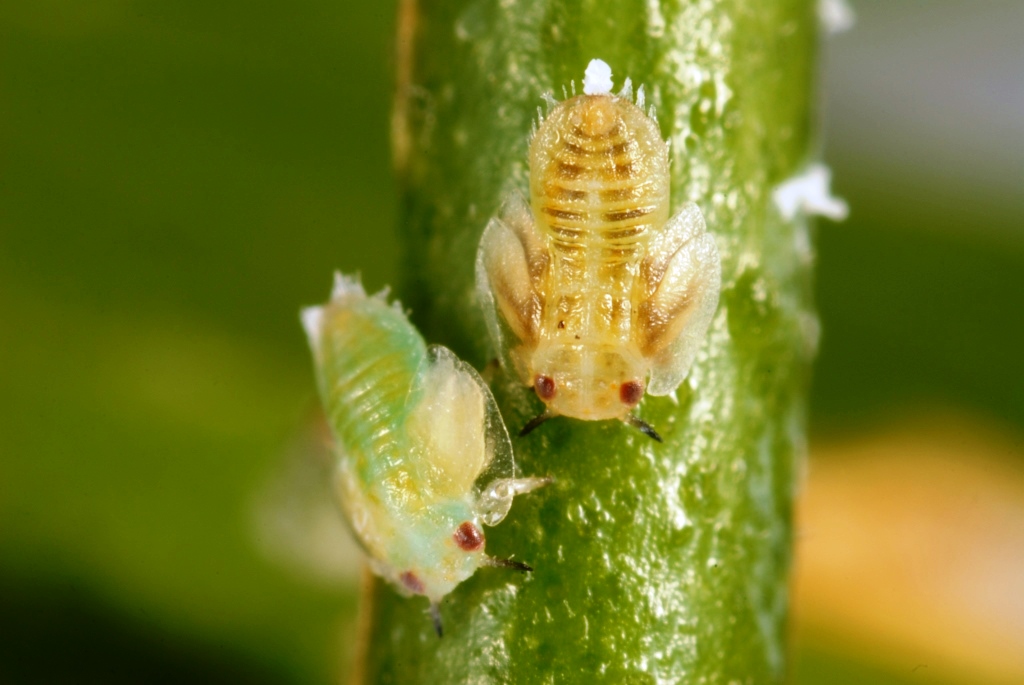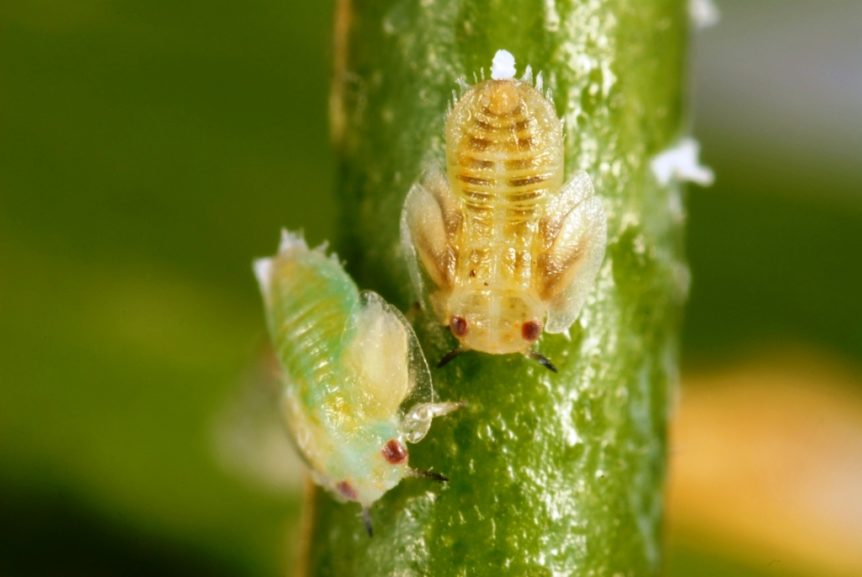
Photo by Lyle Buss, University of Florida Institute of Food and Agricultural Sciences
A California citrus leader believes Georgia will make an ideal home for the Asian citrus psyllid, which vectors the devastating huanglongbing (HLB) disease.
“North of Florida, it is colder, and it’s certainly not as suitable a place as Florida is, but the psyllid is still going to be fine. The cold isn’t long enough here to knock the populations out,” said Roger Smith, fourth-generation citrus producer and executive of AC Foods.
That serves as a warning for Georgia citrus producers who have yet to experience HLB on a commercial level. Smith spoke to growers during the recent Georgia Citrus Association annual meeting in Tifton. His talk centered on the disease and the control measures California has implemented. Similar measures should be at the forefront of Georgia growers’ plans for the future.
“I wanted them to know how serious of an issue it is and how seriously an industry like California has been taking it for well over a decade. It’s hopefully a reminder to the group and leaders of this industry that they need to be more forthright in trying to get the growers together to fight this battle that is facing them,” Smith said.
California has been out front in its management program, which costs $44 million and includes more than 200 employees. Despite the state’s best efforts, HLB continues to gain momentum, according to Rogers.
“We have slowed it down and been very successful in keeping it out of commercial citrus, but it’s still gaining ground … It’s going to be in a commercial grove one day,” Rogers said. “It is definitely still spreading in the southern California area where it’s a more suitable place for the psyllid.”
Time will tell if the psyllid continues to migrate northward in the Southeast and make Georgia a permanent home as well. Rogers believes it will.
“I think the psyllids will like Georgia just fine,” concluded Rogers.

Clint Thompson










